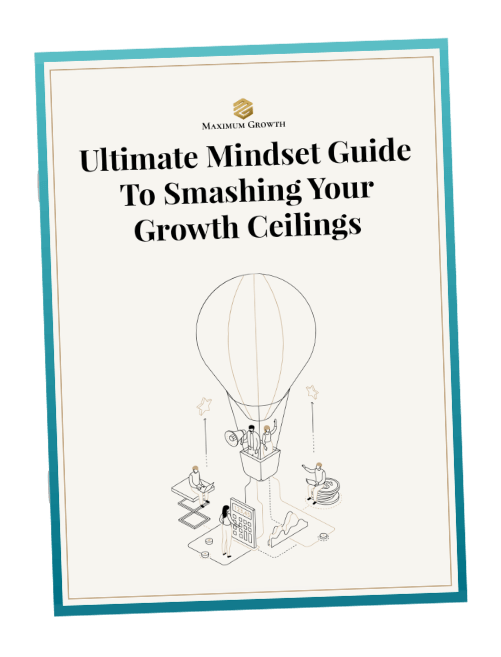Yeah, I know, you put things off more than you’d like. And your list piles up on top of you.
Your reaction: go make another cup of tea and watch the end of a TV Series (that you just started and have hours to go to get to the end).
Let’s go make another cup of tea and watch the end of a TV Series (that you just started and have hours to go to get to the end).
Procrastination eats you alive.
English writer Edward Young, in his 10,000-line poem entitled: The Complaint: or Night-Thoughts on Life, Death, & Immortality, said, “Procrastination is the thief of time.”
It makes you think about being wise with your time, as life and opportunities can slip away quickly.
But that doesn’t change your behaviour.
The inaction of procrastination is something most people dislike, even go as far as ‘hate’ about themselves. And if they had a magic wand, they’d want it to disappear yesterday.
Why do people dislike it so much?
It’s because it has a behavioural spillover that affects other areas of life.
Procrastinate by not doing your work, then you lay in bed Netflixing, you then don’t move your body, you eat more than your daily quota, and you don’t get your brain thinking. Instead, other people do the thinking for you with whatever you’re watching on Netflix, and it ain’t universal principles; it’s fantasies and fairytales.
Then, the culmination of all of that is that you feel you wasted time and, even more so, your potential.
What does it mean to procrastinate?
It’s intentionally and habitually delaying or putting off doing something till a later time.
People procrastinate because of many reasons, such as those listed below:
- The task is too long/complicated/boring/not important/just don’t like it.
- They prefer to choose to do their own seemingly pleasurable activities.
- They are too over-confident and cocky and believe that they have enough time or competency to complete the task.
- They have a ‘care less’ attitude and believe that nothing will happen if they don’t do their work and that people or relationships won’t be affected.
- They procrastinate due to nothing else but pure laziness.
So, if you look at the problem under the problem, you’ll see procrastination is the byproduct of something deeper.
You’re not thinking about the future self (check out the post on that one here).
And you’re not able to regulate your mood, like feeling stressed around a piece of work you have to do, and you choose to avoid it, act like it doesn’t exist, knowing full well that it is still there when you peek up over the blanket later.
When you’re able to regulate your mood, you draw the connection between present and future selves and are more able to make wiser decisions.
When you’re on a downward, negative spiral, expect procrastination to continue. (create a paragraph here) Procrastination is an antidote that doesn’t deliver relief. I gotta give it to you straight.
Yet, before we go down the doom and gloom path, like anything, there is an upside to procrastination. Some people prefer time pressure and, therefore, intentionally procrastinate. They have a rush of excitement to get it done in a short period of time and feel accomplished.
Yet, if we delve deeper into this, it could be pride and self-righteousness in feeling smart that leaves to do the task at the last minute. (Soz for seeing the down side so quickly).
Now, this is the opposite of people who procrastinate, which means doing the task way before it needs to be. This could be because of feeling self wrongeuous, sacred of failure and worried about making mistakes.
Studies on procrastination have determined that those who procrastinate are easily distracted by more interesting or fun activities. They’d prefer to seek pleasure than do the hard yards.
They intentionally place more pleasing activities ahead of appointments or deadlines.
Plus, procrastinating individuals tend to sleep, watch television, or play instead of working on more important things in order to distract or distance themselves from responsibilities.
The more you dislike a task, the more you’ll procrastinate and tend to choose more interesting activities instead of working.
Distracting oneself from responsibilities also gives “an out” if one fails at that task. It means you don’t have to go through the pain of failure, just the pain of never starting.
For example, if you have an extremely difficult task, like setting up a new business, writing a book, or doing prep work for a new and challenging client, and you’re afraid of failing, you can protect self-worth or self-esteem by giving an outside excuse or external distracter for failing.
Thus, distraction with another activity, blaming failure on said activity. “I was too busy with helping the kids, that I didn’t have time to work.”
Therefore, a unique characteristic of procrastinators is that they tend to immerse themselves in distractions.
So, how do you snap out of this illusion?
- Stack up the benefits of what you’d like to do until you’re chomping at the bits to do it.
- Say a new mantra, “I have a do it done now attitude” and see things shift.
That’s it for now. I’ve got some Demartini Method application content creation to do for the Maximum Growth Academy that I’ve used every excuse in the book, even had Bonnie get sick, but “I have a do it done now attitude.”
No time like the present.
Tanya x
Leadership Coach & Master Certified Demartini Method Facilitator
BAppSoSc (Counselling)


